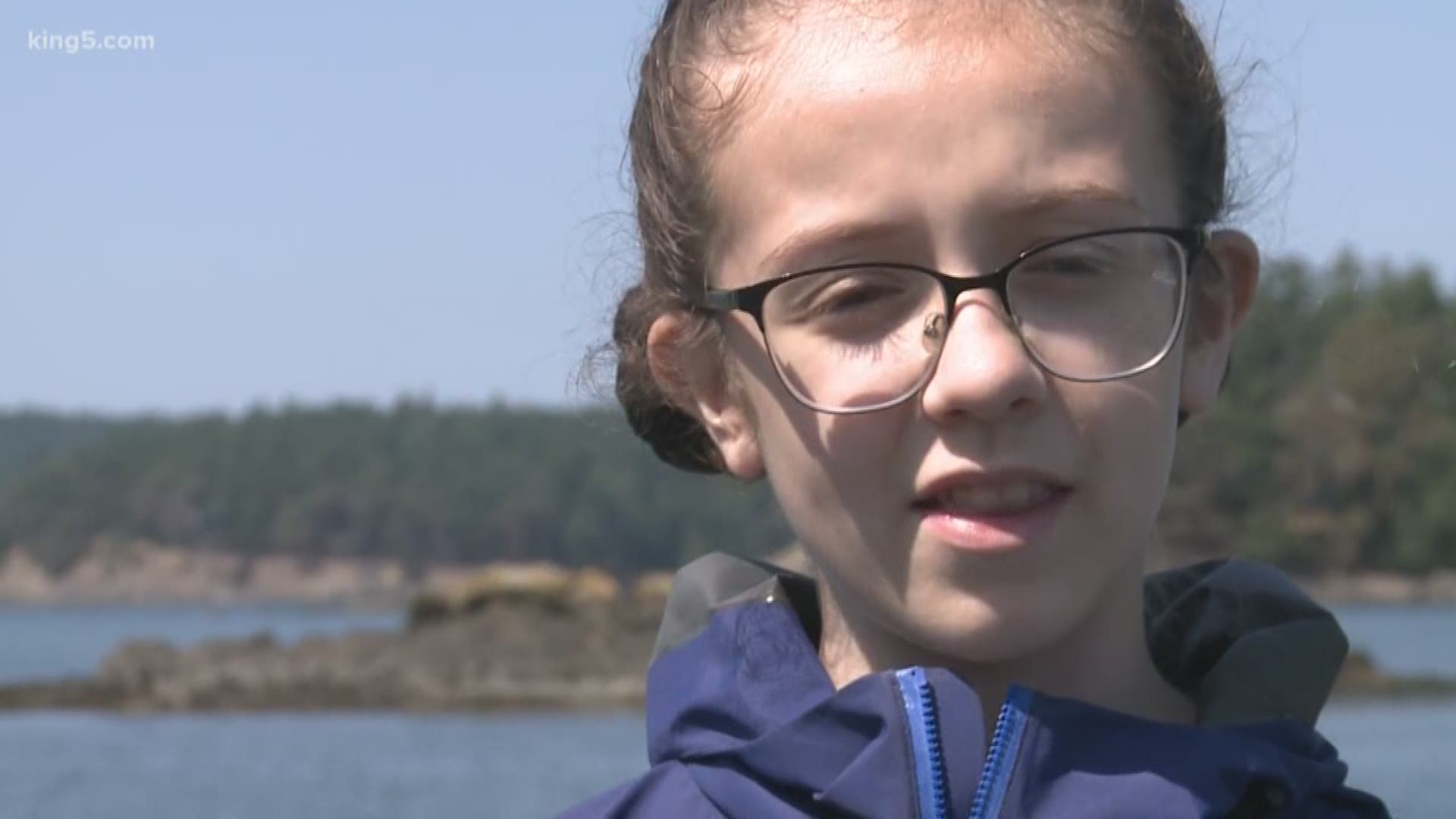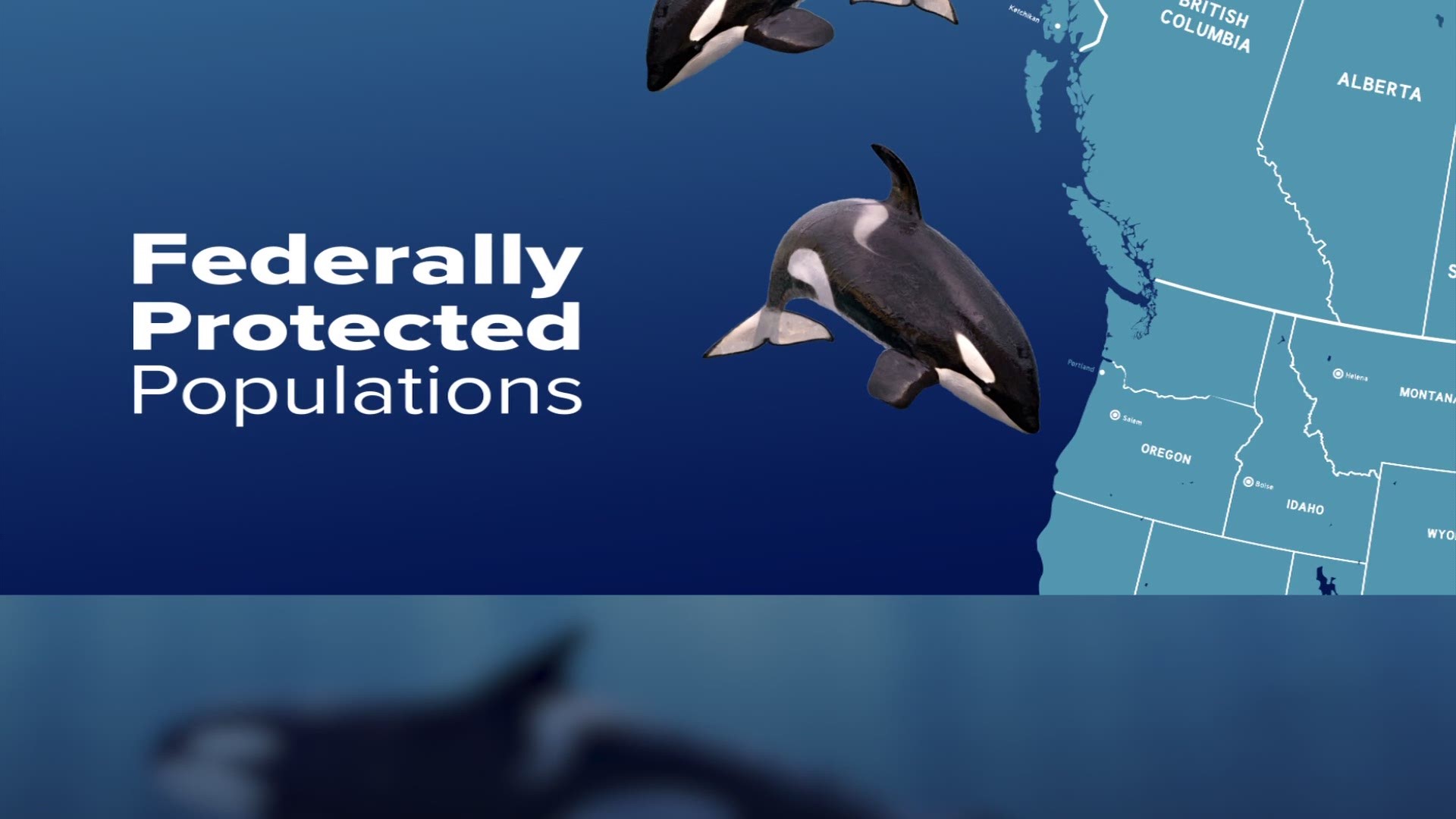FRIDAY HARBOR, Wash. — While covering the Southern Resident orcas, I've met a lot of passionate people. Among all the adults, I regularly run into a 12-year-old girl who refuses to give up. London Fletcher has dedicated her young life to saving the whales.
"We can't lose such an important part of Washington, of our life, we just can't let them go without a fight," Fletcher said.
She watched with the rest of the world as J35 pushed her dead calf for 17 days and more than 1,000 miles in 2018. The incident was dubbed a "parade of grief" and grabbed global attention for the plight of the whales.
"It put them on a world pedestal, it definitely did, and it sparked a fire underneath us to do something," Fletcher said. "We took notice, we definitely took notice, but we didn't take action. We are talking more than we have in the past decade and that's awesome, but we are not taking action and that's what we need to be doing."
Fletcher continues to attend meetings and spread the message of the orcas' need for more food. The Southern Resident killer whales only eat fish, and their preferred diet is Chinook salmon, which are also declining.
Fletcher's interest in marine life started at 4 years old. Her parents say she'd settled on it as a career by the age of 5.
London Fletcher is the youngest member of both the Society of Marine Mammology and the Acoustical Society of America. She's also joined the movement to call for the removal of the four lower Snake River dams.
"I'm going to keep doing what I'm doing and fighting for them and that all depends if they're still around," she said.
If they're still around.
The Southern Residents now number just 73, with only about a half-dozen reproducing. The future looks grim.
But it is the optimism of a child that refuses to give up.
"If we all put up a fight, we can make a real change," Fletcher said.
London Fletcher joins panel, "SAVING THE ORCAS: Can reducing boat noise help with orca recovery?"


